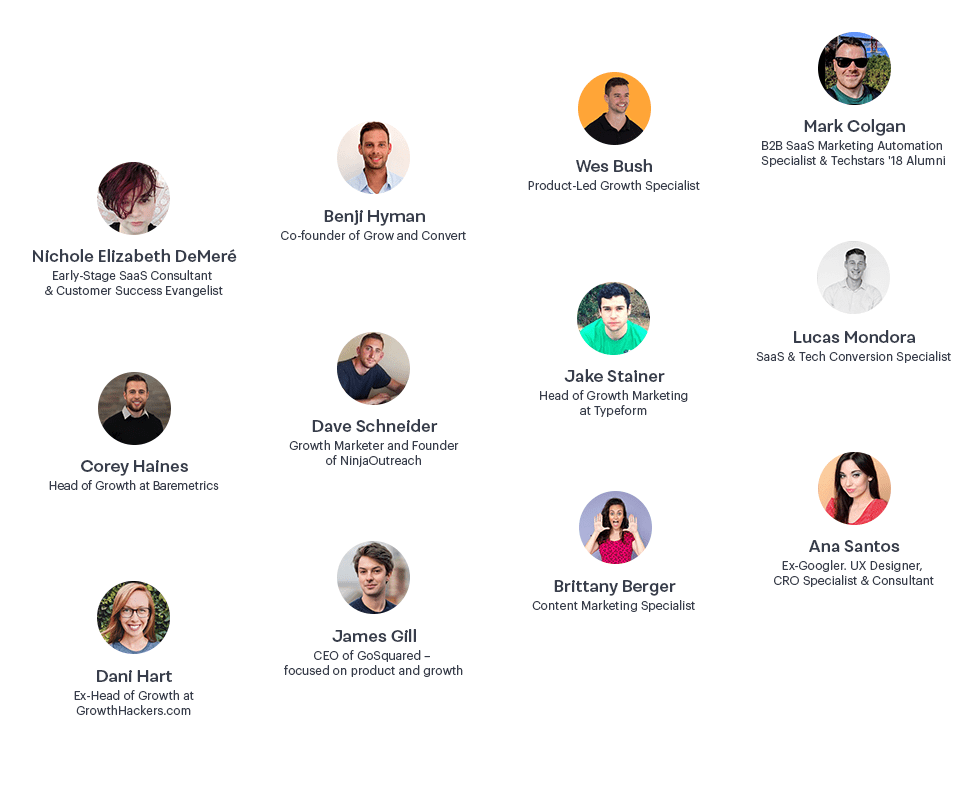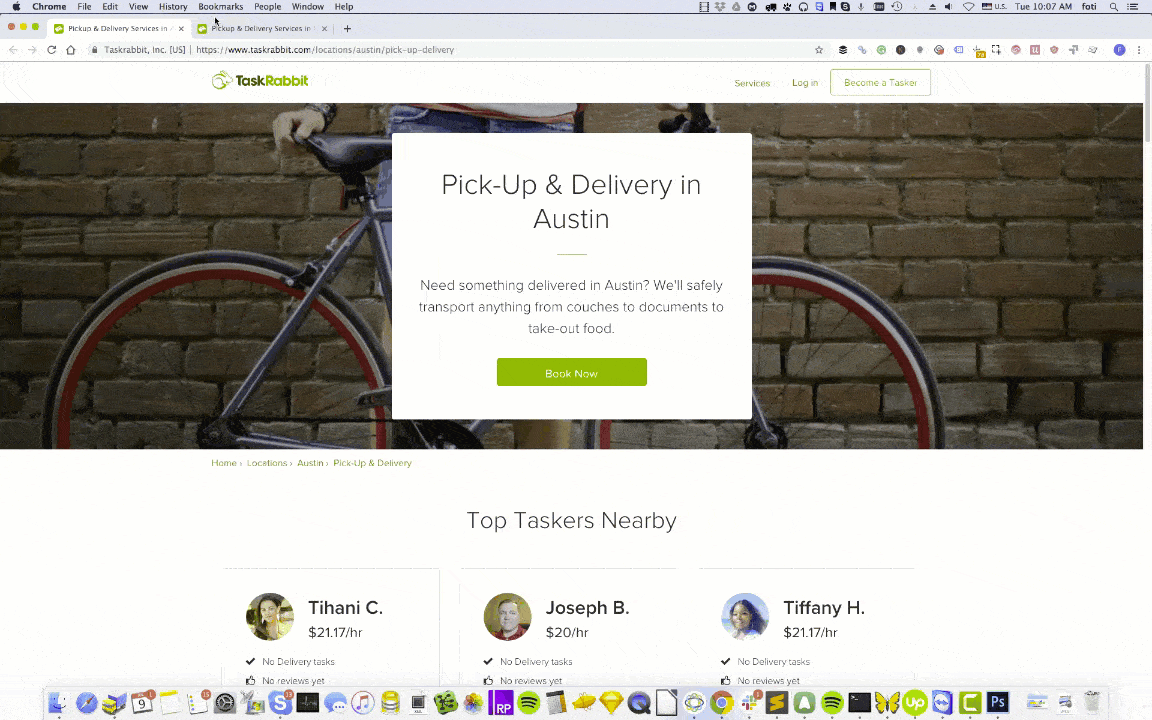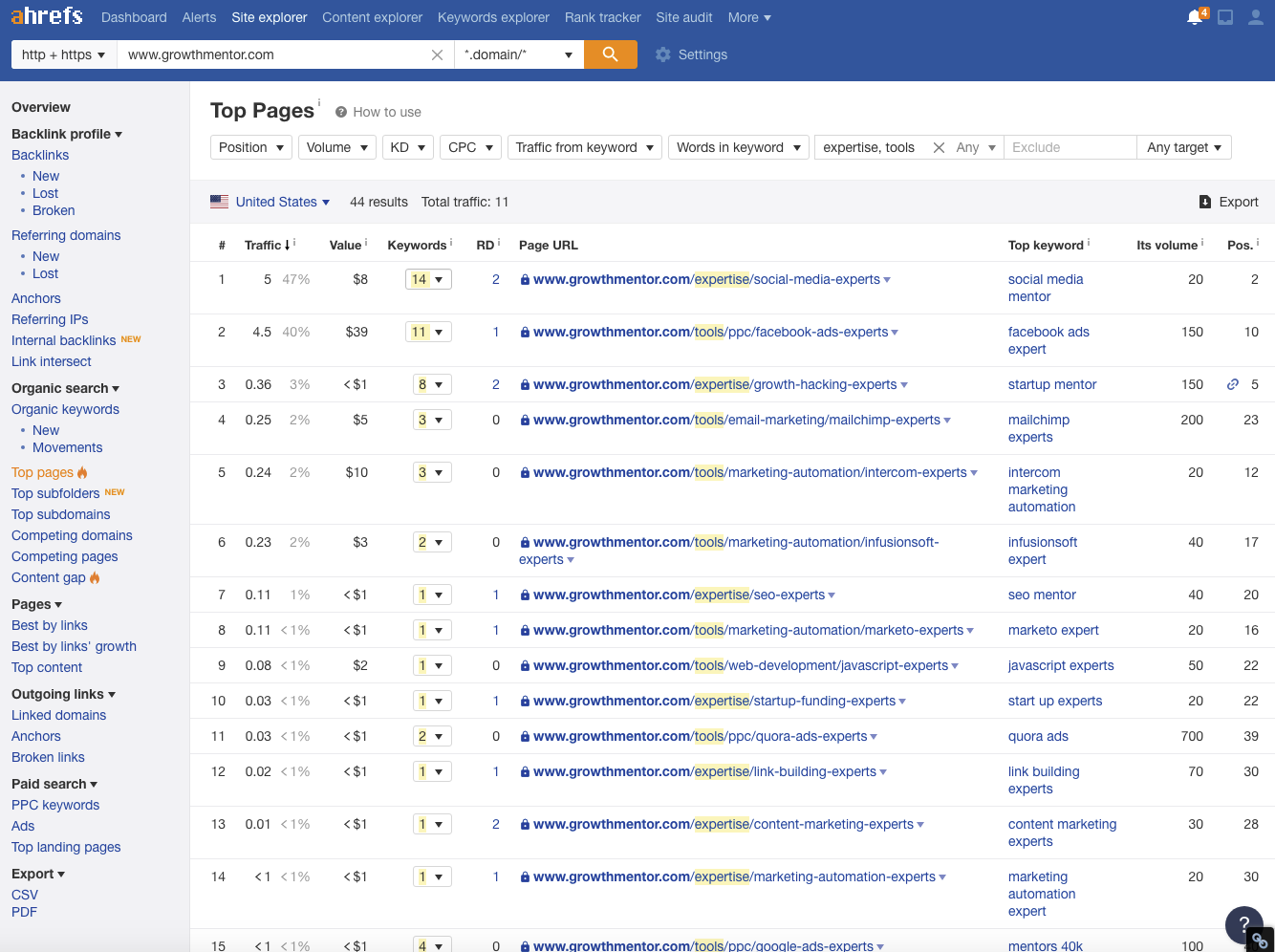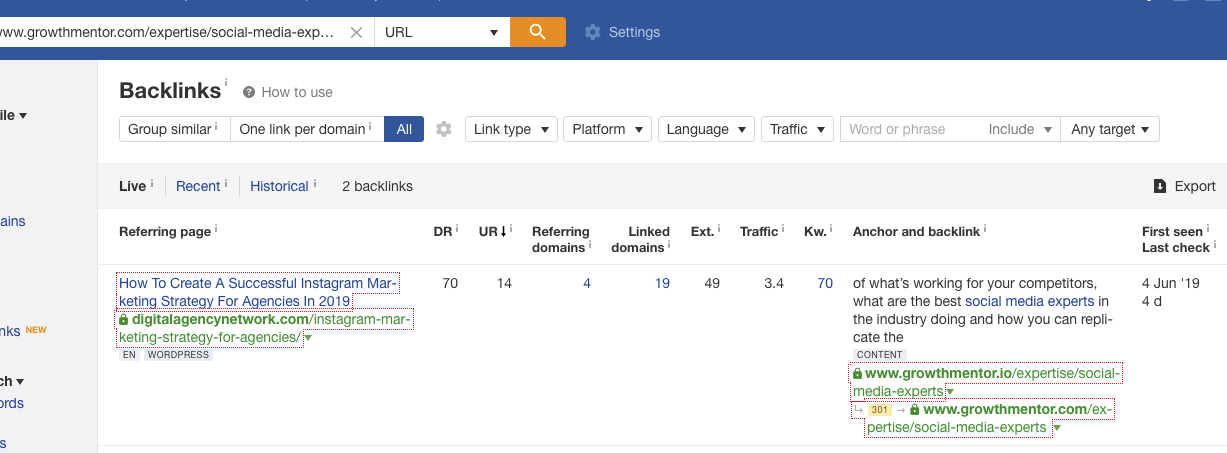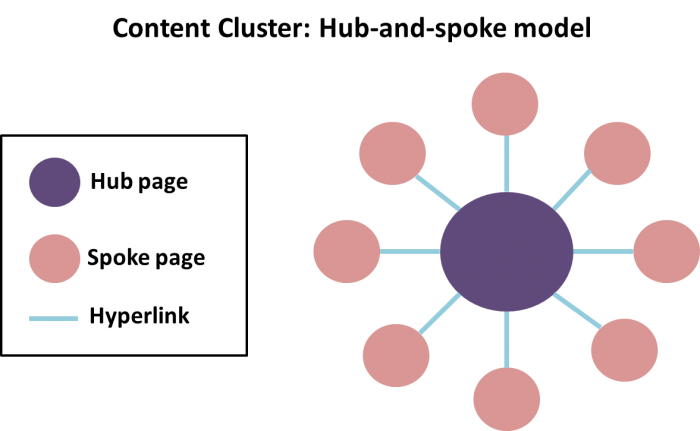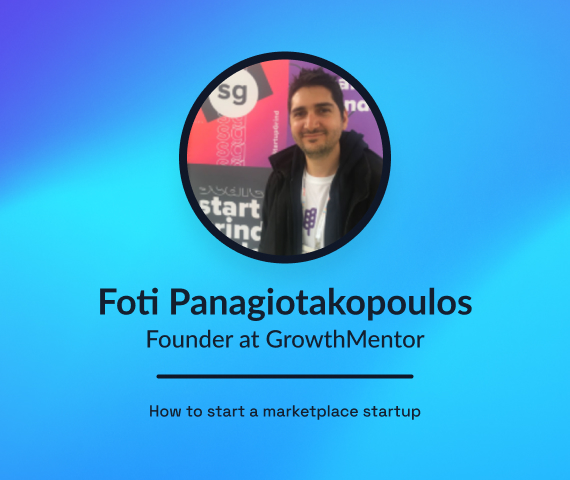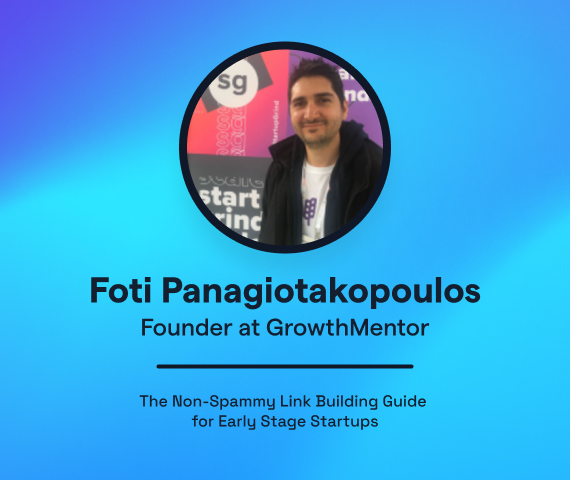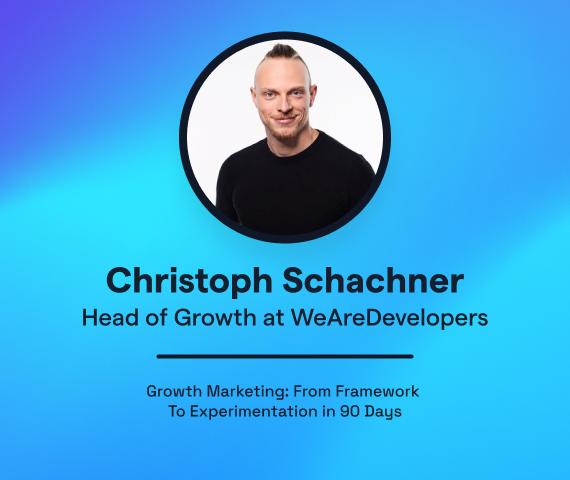Scaling out our SEO efforts by creating +100 landing pages by hand
Before I started GrowthMentor, I made sure to be certain that I performed thorough growth audits on other marketplaces that were in completely different industries.
What I learned from auditing other successful two-sided marketplaces
The most successful all used SEO as growth loop.
Long-tail keyword-optimized pages are usually created programmatically and fueled by user engagement.
For example, when Taskrabbit launches in a new city, it instantly starts to rank for hundreds of competitive bottom-of-funnel longtail keywords.
Does this work?
Yes, this works very, very, well.
If your site has a decent domain authority you’ll be able to start seeing results within a couple of weeks.
Take a look at the Ahref report that shows the keyword madness.
Super bottom of funnel, highly specific = these pages convert.
Deciding to use SEO as a growth loop
If you’re bootstrapped and have a lot more time than money, choosing SEO as a primary growth strategy is a solid choice.
When building a scale-out SEO strategy for a marketplace, you have to choose:
- Will you create the landing pages programmatically?
- Will you create the landing pages manually?
Our development budget was already capped out as it was dealing with product, so we couldn’t go the programmatic route. We’d MVP this SEO strategy by creating the initial batch of around 100 pages by hand.
Here is a sample of long-tail landing pages we created
Keyword targeting
This was the /* keyword targeting strategy across all pages.
+ <keyword> + expert | e.g. growthmentor.com/expertise/google-ads-expert
We chose the url to follow this syntax “keyword-expert” vs. “keyword-mentor” since the searches with expert in the name had a much higher volume and competitiveness.
The gamble was that we’d naturally rank for the mentor derivative because the domain is already giving strong signals of relevance.
Leveraging User-Generated Content (UGC)
The best marketplaces are extremely good at collecting UGC and then repurposing it to drive their scale-out landing pages.
Our UGC strategy was to get the mentors to elaborate on their skill strengths and toolkit strengths on their profiles.
We’d then manually copy/paste that content into the new scale-out landing pages.
Simple.
Results so far
So far we’ve got around 1,500 clicks in the last 6 months from all of these pages.
While it’s not a huge amount of traffic, the clicks had strong bottom of funnel intent which led to a few dozen conversions. Considering these are all high-intent keywords, we could have expected to pay at least $3 CPC for each of those clicks if we were playing the Adwords route, that would have cost us $4,500 in paid traffic.
What I love about Ahrefs is that you can see when your pages start to rank for certain keywords well in advance of any click-based evidence in Google Analytics. It starts measuring at position 100, but then again, so does Google Search Console. And that’s completely free 😉
Thoughts on backlinks
I mentioned at the beginning of the post how Taskrabbit was ranking for high-intent keywords with zero backlinks.
But if you’re like us, and don’t have super-strong domain authority, you probably won’t be that lucky.
Case in point: The #1 most successful page is the social media marketing mentor page, which coincidentally is the only one of these +100 pages that has a high DR do-follow backlink pointing to it from a relevant website.
Opportunity for Topic Clustering
The master plan is to use the landing pages as the pillars and interlink relevant blog posts together to create a hub and spoke model as seen below.
For example:
- Hub Page: www.growthmentor.com/expertise/content-marketing-experts
- Spoke Page: www.growthmentor.com/blog/content-marketing-strategies-saas
- Spoke Page: www.growthmentor.com/blog/finding-content-marketing-mentors
- Spoke Page: www.growthmentor.com/blog/best-content-marketing-books
If business booms and we can afford it, we’d love to add 2-3 content marketers to our growth team and increase our content production velocity.
Check out some awesome articles on the Hub and Spoke strategy
Conclusion
If you’ve got a marketplace or a website that could benefit from a scale-out SEO strategy, start now!
Even if you can’t create the pages programmatically, you can hack the process by putting them together by hand for starts using a CMS.
Yes, it’s time-consuming, but with a proper procedure, you can delegate much of the grunt work to virtual assistants and then come back to give the on-site SEO a comb-over.
Hope this was interesting, any questions leave a comment below.
